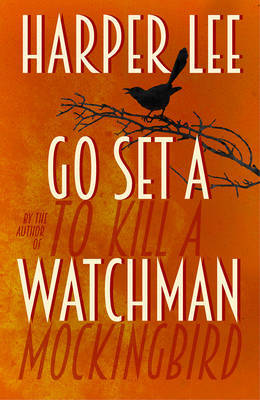
It was with much apprehension that I read Go Set A Watchman. To Kill a Mockingbird has always been my favourite book, and I was scared, after hearing reports of a racist Atticus Finch, that my all time favourite literary hero had been knocked off his pedestal. But to forgo reading anything by the pen of Harper Lee was unthinkable, so, with great trepidation, I started to read. And I did not stop until I finished at 4am. I still cannot quite find the words to describe how I feel about this book, except to say that I fell in love with Harper Lee’s writing all over again.
It’s true that the Atticus Finch Lee dreamt up in Watchman does not age in the way one would hope or expect, and while this left me feeling somewhat bereft, there is so much else to love in this novel.
Scout, (or Jean Louise, as her adult self is more commonly referred to) now in her twenties and living in New York, returns to Maycomb, Alabama for her annual visit with her family. What follows is, at it’s core, her coming of age story. In Scout, now the strong willed, sharp-witted, engaging woman you always dreamt she would become, Lee offers up a new hero. The book builds on the deep, abiding love and respect Scout has for her father and her town, and then tears it to shreds, leaving her, and the reader, confused, angry, betrayed and lost. However, Lee’s inimitable prose carries you through Scout’s transition from doting child to free thinking adult, who must examine her own prejudice, so beautifully that you can’t help but smile as your heart breaks.
Though the characters are now grown, Lee’s mastery at writing through the eyes of children is not lost in this book, as peppered throughout are Scout’s recollections of her childhood with her brother Jem and their old friend Dill. To revisit these characters as you once knew them is an incredible gift, and I urge fans of To Kill a Mockingbird to set aside their doubts and read this book, if only to see the world through their eyes again.
In Go Set a Watchman, Harper Lee unflinchingly tackles racial injustice with what is often an uncomfortable honesty, particularly as views have vastly changed since the time of her writing. Without doubt this novel will leave you with mixed emotions, but don’t be scared – it’s worth the heart-ache, I promise!





